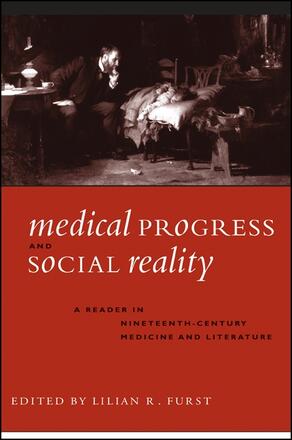
Medical Progress and Social Reality
A Reader in Nineteenth-Century Medicine and Literature
Alternative formats available from:
An anthology of nineteenth-century literature about medicine and medical issues.
Description
Medical Progress and Social Reality is an anthology of nineteenth-century literature on medicine and medical practice. Situated at the interdisciplinary juncture of medicine, history, and literature, it includes mostly fictional but also some nonfictional works by British, French, American, and Russian writers that describe the day-to-day social realities of medicine during a period of momentous change. Issues addressed in these works include the hierarchy in the profession, the use of new instruments such as the stethoscope, the advent of women doctors, the function of the hospital, and the shifting balance of power between physicians and patients. The volume provides an introductory overview of the most important aspects of medical progress in the nineteenth century, and it includes an annotated bibliography of further readings in medical history and literature. Selections from Anthony Trollope, George Eliot, Gustave Flaubert, Sarah Orne Jewett, Sinclair Lewis, Mikhail Bulgakov, and others are included, as well as the American Medical Association's 1847 Code of Ethics.
Lilian R. Furst is Marcel Bataillon Professor of Comparative Literature at the University of North Carolina at Chapel Hill. Her previous books include Through the Lens of the Reader: Explorations of European Narrative and Home Is Somewhere Else: Autobiography in Two Voices (coauthored with Desider Furst), both published by SUNY Press; and Between Doctors and Patients: The Changing Balance of Power.
Reviews
"The first such resource of its kind for the study of medicine in literature. Furst's introductions and selections show that nineteenth-century literature can help students understand current medical practice because it portrays the beginnings of technological and scientific medicine, with problems, values, situations, and relationships that are still with us today. " — Peter W. Graham, coauthor of Articulating the Elephant Man: Joseph Merrick and His Interpreters
"Lilian Furst has produced a welcome and useful addition to the growing field of medical humanities. Premedical and medical students as well as doctors with an interest in medical literature and history will find this a delightful and informative read. " — Larry Zaroff, M. D., Stanford University School of Medicine